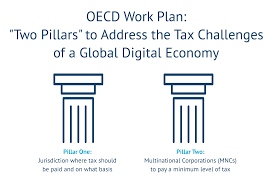
1. Removing a Major Hurdle to Startup Growth
Angel Tax and its abolition in India
A brief overview of Angel Tax
"Angel Tax" is a term commonly used in India to describe the income tax levied on startups when they raise funds from angel investors at a valuation higher than the "fair market value" (FMV) of the company’s shares. Introduced in 2012 under Section 56(2)(viib) of the Income Tax Act. If a closely held company (usually a startup) issues shares to a resident investor at a price higher than FMV, the excess is treated as "Income from other sources" and taxed at ~30%.
Example: If FMV of a share is ₹100, but it is issued to an investor at ₹200, then ₹100 is taxed as income.
Major Pitholes of levy of Angel Tax and relief to startups
Angel was introduced to curb the practices of tax evasion and money laundering where funds were shown being as inflated share capital/ premium. However geniuene startups were caught within its net and had to pay high tax demands. Hence,The Indian government has provided exemptions for DPIIT-recognized startups. If registered with the Department for Promotion of Industry and Internal Trade (DPIIT), Angel Tax does not apply. Investors and startups must file declarations and fulfill prescribed conditions.
In 2023, the scope of angel tax has further widened applying to both residents as well as foreign investors.The Central Board of Direct Taxes (CBDT) notified five methods to calculate FMV (like DCF, NAV, etc.).
Abolition of Angel Tax
In the 2024 Union Budget, Finance Minister Nirmala Sitharaman announced the abolition of Angel Tax—officially under Section 56(2)(viib) of the Income Tax Act, 1961—effective from Financial Year (FY) 2025–26, which began on April 1, 2025. This applies to all categories of investors. Thus, for any share issuances or investments made on or after April 1, 2025, Angel Tax no longer applies.
Major Reasons for abolition of Angel Tax
1. Removing a Major Hurdle to Startup Growth
Angel Tax, had become a significant barrier for genuine startups. Entrepreneurs and investors criticized it for hindering capital formation and innovation.
2. Valuation Disputes & Compliance Complexities
Startups struggled to justify valuations based on intangible criteria like business potential or founder credentials using prescribed methods (NAV/DCF). These methods often yielded infeasible results or triggered disputes with tax authorities.
3. Lack of Clarity & Litigation Over Valuation
The absence of clear, objective standards led to repeated conflicts between startups and tax assessors. Tax officers often rejected startup valuations, resulting in ambiguity, litigation, and a chilling effect on early-stage investments.
4. Conflict With FDI Norms & International Investors
Angel Tax frequently conflicted with Foreign Direct Investment (FDI) valuation norms, causing regulatory friction for cross-border capital flows. The extension of the tax to non-resident investors in 2023 further complicated matters, pushing foreign funding away.
5. Exemptions Fell Short
Though DPIIT-registered startups and certain qualified investors were granted exemptions many startups failed to benefit due to stringent eligibility criteria.
8. Stronger Anti-Money Laundering Alternatives Now in Place
According to Finance Minister Sitharaman, existing frameworks such as the Prevention of Money Laundering Act (PMLA) and the Black Money Act were deemed sufficient to address suspected misuse of funding. Hence, Angel Tax had become redundant as an anti-abuse measure.
Consult with A2consultants to explore our indepth knowledge and insight on Angel Tax
A2consultants Indian Business Companion is also available on ChatGPT, making it more accessible for Professionals, Businesses, and Foreign Entities seeking insights into the intricate tax challenges you can acess from this link
Book a Free consultation
https://chatgpt.com/g/g-6865f276fc1c8191b467aa48f145a369-a2consultants-india-business-companion.
Scan Here to Know More with ChatGPT




